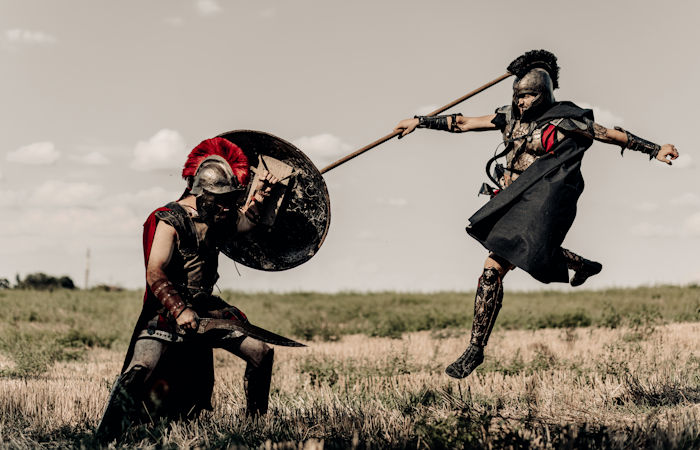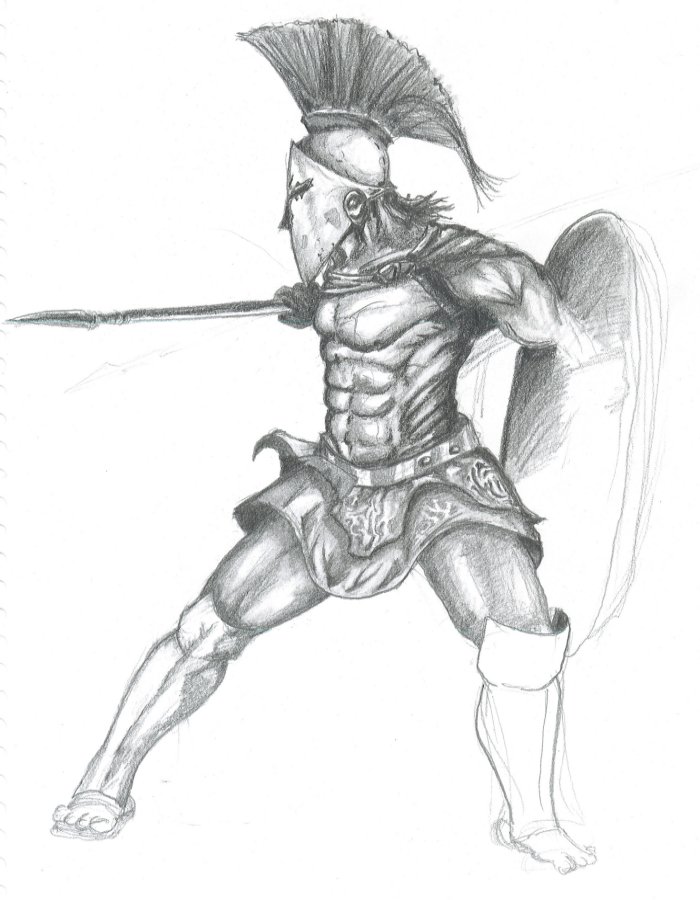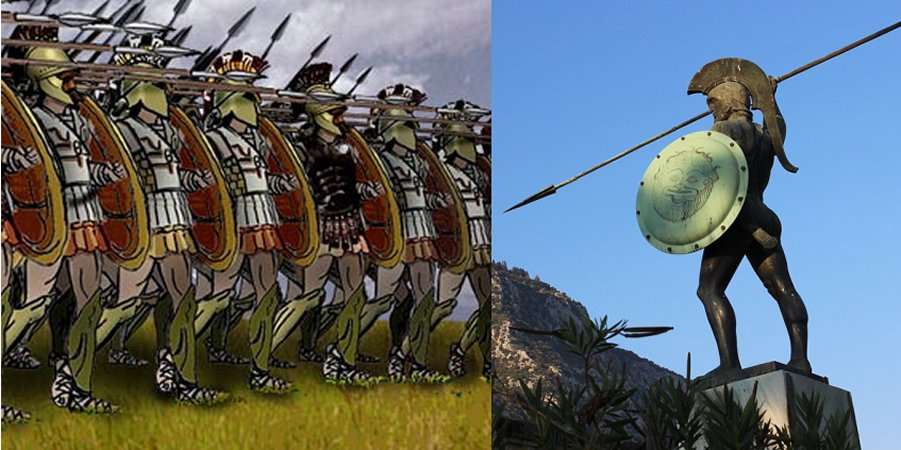Why Was The Spartan Army So Successful?
Conny Waters - AncientPages.com - Sparta was famous for being a city-state that valued discipline. The state’s citizens were expected to be loyal and contribute to Sparta’s prosperity. Located in a valley on the banks of the Eurotas River in the southeastern portion of Greece, it was surrounded by several enemies.
Credit: Adobe Stock - Stanislav
Foreigners were allowed to live in Sparta, but they had no rights as citizens and could be expelled anytime for any reason.
It’s also no coincidence that Spartan warriors were exceptionally skilled, and the army was victorious. Military training and education were mandatory for young boys.
What Was Daily Life For Spartan Warriors?
Ancient records reveal warriors of Sparta had to follow strict rules. Young men trained to become warriors had limited rights to move around freely.
From the age of 7, when military training started, boys and men had to live in confined military barracks until they were 30 years. Leaving those houses was not permitted, not even when the men married. There was not much room for private life.
An image drawn in pencil of a Spartan Warrior. Image credit: SAWg3rd - CC0 1.0
These restrictions occasionally led to those men sneaking out late in the evening to meet their wives.
In Sparta, only the strongest survived. As previously mentioned in Ancient Pages, “one of the harshest facts to come out about this way of living was that the older citizens of Sparta would kill those boys who could not be trained due to a disability.
The boys were thrown into a pit by the elders, who judged the physical ability of each boy in question. Not all were condemned to death, just the weakest ones.”
Spartan warriors were somewhat vain. They often wore long hair and styled it before a battle. The goal was to look as fearsome as possible, but an attractive physical appearance was never wrong. A real warrior never wore any clothes except for the red cape.
Also, a Spartan warrior could not expect to enjoy too much delicious food. Nothing was more ridiculous than a fat warrior. Spartan warriors were expected to be athletic and fit.
Left: The Spartan army was an infantry-based army that fought using the phalanx formation. Credit: Public Domain - Right: Statue of King Leonidas. Credit: Public Domain
The worst sin a Spartan warrior could commit was capitulation. When raising their sons, mothers always told them they should return as soldiers or dead in a battle. The die-or-win mentality was typical among warriors of the ancient world. Viking warriors’ highest goal was to die courage in battle. Only such honorable death could guarantee a Viking entrance to Valhalla, where the great Norse God Odin resided.
The Spartan King Leonidas received superior military training, which prepared him unknowingly for future events. He may not have succeeded in winning an impossible war, but he and his 1,000 men died heroically defending the land that they loved.
It cannot be denied that Spartan warriors were skilled, effective, and courageous, but all their accomplishments were achieved through hard military training that started at a young age.
Written by Conny Waters – AncientPages.com Staff Writer
Updated on October 30, 2022
Copyright © AncientPages.com All rights reserved. This material may not be published, broadcast, rewritten or redistributed in whole or part without the express written permission of AncientPages.com
Expand for referencesMore From Ancient Pages
-
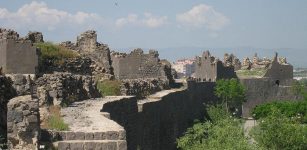 1,700-Year-Old Underground Temple Of Mithras Unearthed In East Anatolia, Turkey
Archaeology | May 10, 2017
1,700-Year-Old Underground Temple Of Mithras Unearthed In East Anatolia, Turkey
Archaeology | May 10, 2017 -
 7,000-Year-Old Underwater Road Discovered In Adriatic Sea Off Korcula Island
Archaeology | May 11, 2023
7,000-Year-Old Underwater Road Discovered In Adriatic Sea Off Korcula Island
Archaeology | May 11, 2023 -
 Evolution Of Paleodiet At Neolithic Qujialing Site Unveiled By Scientists
Archaeology | Nov 30, 2022
Evolution Of Paleodiet At Neolithic Qujialing Site Unveiled By Scientists
Archaeology | Nov 30, 2022 -
 Micro-CT Scans Revealed: It Wasn’t Egyptians’ Falcon-Headed Deity But Malformed Human Baby
Archaeology | Jun 2, 2018
Micro-CT Scans Revealed: It Wasn’t Egyptians’ Falcon-Headed Deity But Malformed Human Baby
Archaeology | Jun 2, 2018 -
 New DNA Study Links Early Europeans’ Cultural And Genetic Development Over Several Thousand Years
Archaeology | Aug 9, 2023
New DNA Study Links Early Europeans’ Cultural And Genetic Development Over Several Thousand Years
Archaeology | Aug 9, 2023 -
 30 Ancient Skeletons May Finally Unravel The Secrets Of The Dead Sea Scrolls
Archaeology | Nov 23, 2017
30 Ancient Skeletons May Finally Unravel The Secrets Of The Dead Sea Scrolls
Archaeology | Nov 23, 2017 -
 Stone Age Statues Were Taken To Britain For Restoration In 1990 – Never Returned Home To Jordan
News | Apr 6, 2021
Stone Age Statues Were Taken To Britain For Restoration In 1990 – Never Returned Home To Jordan
News | Apr 6, 2021 -
 Sleipnir: Eight-Legged Horse With Supernatural Strength That Belonged To God Odin
Featured Stories | Mar 21, 2017
Sleipnir: Eight-Legged Horse With Supernatural Strength That Belonged To God Odin
Featured Stories | Mar 21, 2017 -
 Ancient Dragon Stone That Inspired Legends Discovered In Turkey
Archaeology | Dec 12, 2018
Ancient Dragon Stone That Inspired Legends Discovered In Turkey
Archaeology | Dec 12, 2018 -
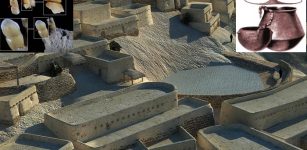 4,000 Years Ago Women Of El Argar Used Their Teeth As Tools
Archaeology | Nov 10, 2020
4,000 Years Ago Women Of El Argar Used Their Teeth As Tools
Archaeology | Nov 10, 2020 -
 Stonehenge Is Older Than Mankind – Archaeologist Suggests
Archaeology | Apr 12, 2018
Stonehenge Is Older Than Mankind – Archaeologist Suggests
Archaeology | Apr 12, 2018 -
 Nanna: Mesopotamian Moon God, Lord Of Wisdom And Father Of The Gods
Featured Stories | Apr 1, 2017
Nanna: Mesopotamian Moon God, Lord Of Wisdom And Father Of The Gods
Featured Stories | Apr 1, 2017 -
 Surprising Discovery Of Rare Turtle Statue Under Bayon Temple In Angkor, Cambodia
Archaeology | May 2, 2024
Surprising Discovery Of Rare Turtle Statue Under Bayon Temple In Angkor, Cambodia
Archaeology | May 2, 2024 -
 Fossilized Skulls Reveal Relatives Of Today’s Rhinos Had No Horn And Died Out 5 Million Years Ago
Fossils | Nov 2, 2023
Fossilized Skulls Reveal Relatives Of Today’s Rhinos Had No Horn And Died Out 5 Million Years Ago
Fossils | Nov 2, 2023 -
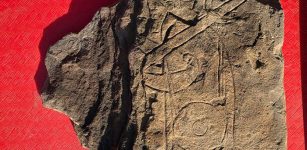 Remarkable Early Medieval ‘Govan Warrior’ Stone Discovered In Glasgow, Scotland
Archaeology | Sep 22, 2023
Remarkable Early Medieval ‘Govan Warrior’ Stone Discovered In Glasgow, Scotland
Archaeology | Sep 22, 2023 -
 On This Day In History: Sir Francis Drake Sets Sail On His Round-The-World Voyage – On Dec 13, 1577
News | Dec 13, 2016
On This Day In History: Sir Francis Drake Sets Sail On His Round-The-World Voyage – On Dec 13, 1577
News | Dec 13, 2016 -
 Unexplained Phenomenon Around Yellowstone Puzzles Scientists
Featured Stories | Nov 12, 2018
Unexplained Phenomenon Around Yellowstone Puzzles Scientists
Featured Stories | Nov 12, 2018 -
 Hundreds Of Undiscovered Roman Forts Revealed By Spy Satellites
Archaeology | Oct 27, 2023
Hundreds Of Undiscovered Roman Forts Revealed By Spy Satellites
Archaeology | Oct 27, 2023 -
 Cities Of Bashan Were Built By Ancient Giants – Archaeological Evidence Exists But Is Ignored
Biblical Mysteries | Nov 25, 2020
Cities Of Bashan Were Built By Ancient Giants – Archaeological Evidence Exists But Is Ignored
Biblical Mysteries | Nov 25, 2020 -
 Has The Body Of Legendary Pirate Black Sam Finally Been Discovered Off The Coast Of Massachusetts?
Archaeology | Feb 17, 2021
Has The Body Of Legendary Pirate Black Sam Finally Been Discovered Off The Coast Of Massachusetts?
Archaeology | Feb 17, 2021

